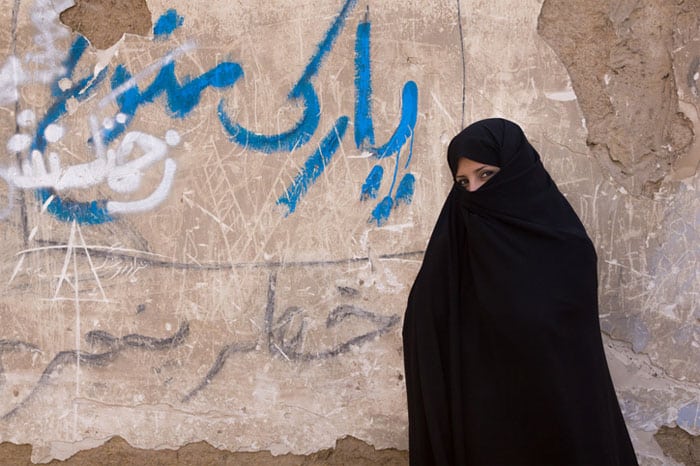 Guido Dingemans, De Eindredactie / Getty Images
Guido Dingemans, De Eindredactie / Getty Images Harvey Weinstein is an odious human being who deserves to spend the rest of his life behind bars. But when his horrific behavior became public five years ago, it helped trigger a long overdue cultural revolution. While still far from complete, the Me Too movement forced our society to finally confront the consequences of widespread sexual abuse and harassment, and to consider the penalties, remedies and support systems required to bring about systemic change.
But Ebraham Raisi has done far more damage than Weinstein. The president of Iran, under the direction of Ayatollah Khamenei and his mullahs, is the latest and possibly most oppressive of that country’s elected leaders to oversee suffocating restrictions against the women of his country. The most visible symbol of that repression is the requirement that all women wear a hijab, and it was the death of Mahsa Amini, a young woman who had been arrested by the Iranian “morality police” for failing to cover her hair with sufficient modesty that led to the current nationwide protests that have been taking place from one end of Iran to the other.
Iran periodically sees widespread uprisings against its authoritarian government, most notably the Green Revolution of 2009 and the 2019 Bloody November protests. Both were ruthlessly suppressed by the governing authorities and both were all but ignored by American presidents Barack Obama and Donald Trump. But resentments among the Iranian people have continued to fester, and Amini’s death has led to an outburst of public dissent that have proved much more difficult for the country’s leaders to shut down.
There are two noticeable differences between the current protests and those in previous years. The first is the visible and vocal support the Biden Administration has provided the insurgents. Biden has strongly denounced the Iranian government and his administration has imposed sanctions and worked to maintain Internet service for the country in the face of a government shutdown, providing the protestors with vital communications and organizational tools.
The other important change is the unprecedented leadership role that the women of Iran are taking to shape the protests and drive them forward. Women have participated in these types of demonstrations in the past, but largely in a supportive role. This time, the decisions of women of all ages and religious backgrounds to remove, discard and even burn their hijabs have become the focal point for the resistance. This is the Iranian Me-Too movement, with even higher stakes as they fight to end the gender-based apartheid under which they have suffered for too long.
But while the Weinstein-fueled uprising against sexual misconduct transcended national boundaries five years ago, this populist pushback has remained almost completely within Iran’s borders. While protests have taken place in cities around the world, the vast majority of participants are those of Iranian descent. The global solidarity that existed in this movement’s earlier days is noticeably absent.
Some of this is the way a geographically isolated country such as ours often reacts to injustices that take place in other parts of the world. Ken Burns’ new documentary on the American passive reaction to the Holocaust was a jolting reminder as to how an isolationist nation can ignore the rest of the world if it tries hard enough. The current genocide being committed by the Chinese government against the Uyghur people of the Xinjiang is only beginning to receive the type of attention and outrage that it deserves and still only makes a sporadic impact in American cultural awareness despite the scope of the atrocities.
We owe it to the women of Iran to stand by them more loudly and more forcefully than we have to date.
The luxury of being bordered by the world’s two largest oceans allows the United States to maintain an isolationism and ethnocentrism matched by few other countries. So it’s easy to assume that problems that exist here are the only ones that matter. But equality for women, opportunity for women and safety for women are universal challenges, whether in Los Angeles, New York, or Tehran. We owe it to the women of Iran to stand by them more loudly and more forcefully than we have to date.
Zan, zendegi, azadi. Woman, life, freedom.
Dan Schnur is a Professor at the University of California – Berkeley, USC and Pepperdine. Join Dan for his weekly webinar “Politics in the Time of Coronavirus” (www/lawac.org) on Tuesdays at 5 PM.























 More news and opinions than at a Shabbat dinner, right in your inbox.
More news and opinions than at a Shabbat dinner, right in your inbox.